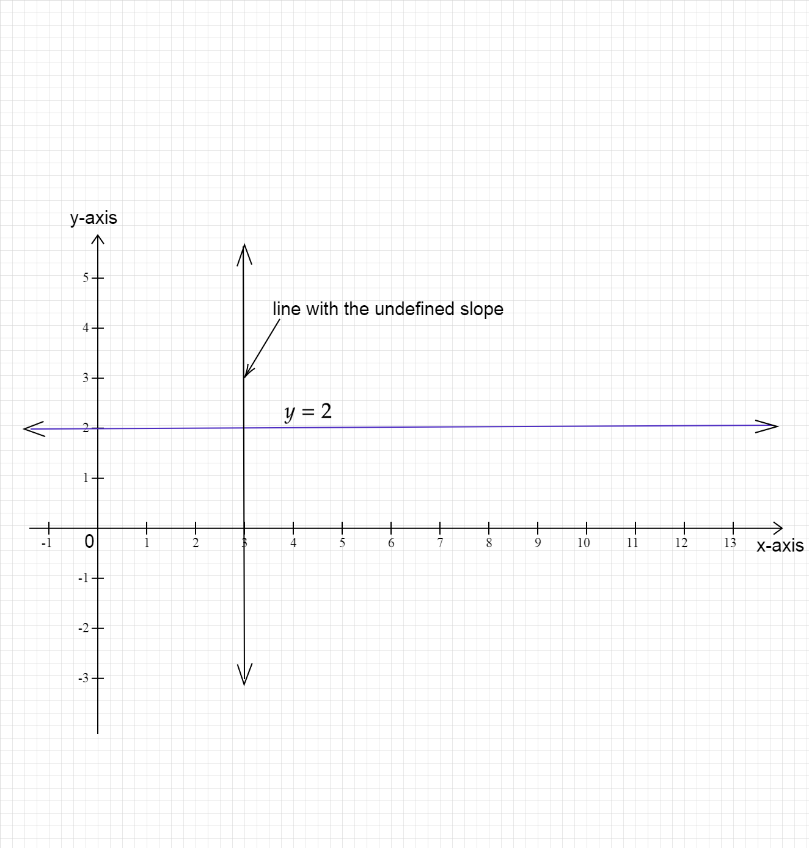Question
Question: How do you find the slope perpendicular to \(y=2\) ?...
How do you find the slope perpendicular to y=2 ?
Solution
To find the slope of a line with respect to the slope of another line, first write the equation of the given line in the slope-intercept form, and then if the lines are perpendicular to each other then use the formula m1m2=−1 to find the slope of the other line.
Complete step-by-step answer:
Given the line:
⇒y=2
When two lines are perpendicular then their slopes satisfy the condition m1m2=−1 where m1and m2 represent the slopes of the given two lines respectively.
Also, by definition of a horizontal line, we can say that the slope of a horizontal line is zero. For a line perpendicular to a horizontal line, the slope of it will be undefined as a line perpendicular to a horizontal line will be a vertical line.
Writing the given equation in the form of slope-intercept form we get,
⇒y=0x+2 , where we can see that the slope of the given line is 0 . This concludes that the given line is a horizontal line and is parallel to the x- axis.
Now, to find a line that has the slope perpendicular to this line substitute the value of the slope of line 1 in the formulam1m2=−1.
So, we get the slope of the second line as,
⇒0×m2=−1
⇒m2=0−1=∞
Therefore, we get the slope perpendicular to y=2 as undefined.

Note: A slope or gradient of a line can be defined as the value or number that denotes the direction and the steepness of the given line. The slope is generally represented by the letter m . A slope can be calculated by calculating the ratio of the change vertically to the horizontal change between any two distinct points on a given line.
